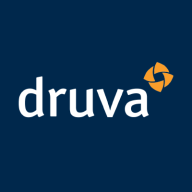

Find out what your peers are saying about Veeam Software, Zerto, Commvault and others in Disaster Recovery (DR) Software.


Azure Backup is a scalable backup solution with zero capital investment and minimal operational expenses that can help a company achieve maximal data protection. Azure Backup’s System Center Data Protection Manager provides optional integrations that can enable you to protect both advanced workloads running in your datacenter in VMs as well as those that are on physical servers.
Azure Backup has many features that make it a most effective product. Included among these is its ability to easily scale up your storage capacity. It taps into the cloud to give you the ability to expand on a massive scale. This can be done without any monitoring or maintenance overhead.
Benefits of Azure Backup
Some of the benefits of using Azure Backup include:
Reviews from Real Users
There are a number of characteristics that make Azure Backup extremely effective. Two of these are the flexibility that it offers users and its overall effectiveness.
PeerSpot user Ayman Y., an IT manager at NOMAC, notes all of the different backup options that Azure Backup offers. He writes, “It has many features. First of all, you can schedule a backup for the client as you like. You can do a backup from the whole virtual machine as an image. You can do a backup only from files and folders. It has every option. All options are available for the backup, for the restore, for the bandwidth utilization to do backups, even virtual machines or a physical machine. If you need to do a backup of the whole image from the virtual machine, all these options are there.”
PeerSpot user Muzammil M., a senior operations engineer at the AlGosaibi Group, notes the effectiveness of Azure Backup when he writes, “Azure Backup is good because it is entirelycloud-based, which means that you can be 99.9% sure that your backup is safe. This is the reason that I suggest its use for companies that need to back up critical data.”
Druva Phoenix is a comprehensive cloud-based data protection and management solution that enables organizations to securely backup, recover, and manage their data across endpoints, physical servers, virtual machines, and cloud applications. With its scalable and flexible architecture, Druva Phoenix simplifies data protection and eliminates the need for traditional backup infrastructure.
By leveraging the power of the cloud, Druva Phoenix offers organizations a cost-effective and efficient way to protect their critical data. It provides automated backup and recovery capabilities, ensuring that data is always protected and easily recoverable in the event of a disaster or data loss. With its global deduplication and compression technology, Druva Phoenix minimizes storage requirements and reduces costs.
Druva Phoenix also offers advanced features such as point-in-time recovery, allowing organizations to restore data to a specific point in time, and granular file-level recovery, enabling users to recover individual files or folders. Its intuitive web-based console provides a centralized view of all protected data, making it easy to manage and monitor backups across the entire organization.
In addition to data protection, Druva Phoenix offers comprehensive data management capabilities. It enables organizations to gain insights into their data through advanced analytics and reporting, helping them make informed decisions and optimize their storage resources. Druva Phoenix also supports legal and compliance requirements by providing eDiscovery capabilities and ensuring data is retained and disposed of according to regulatory guidelines.
With its cloud-native architecture, Druva Phoenix offers organizations the flexibility to protect and manage their data across a wide range of environments, including on-premises, remote offices, and cloud applications such as Microsoft 365 and Google Workspace. It seamlessly integrates with popular cloud platforms like AWS and Azure, allowing organizations to leverage their existing cloud investments.
We monitor all Disaster Recovery (DR) Software reviews to prevent fraudulent reviews and keep review quality high. We do not post reviews by company employees or direct competitors. We validate each review for authenticity via cross-reference with LinkedIn, and personal follow-up with the reviewer when necessary.